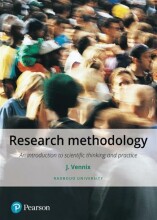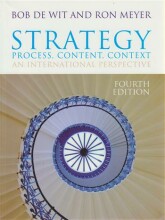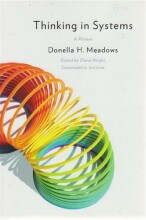Quantitive Research: background
19 important questions on Quantitive Research: background
What is the difference between a scientist and a empirical scientific research?
2. The scientists do no seek to verify and old random statement.
What is empricial research and what are the elements of the wheel of science?
Four elements of wheel of science:
- Theory
- Hypothesis
- Observations
- Empirical generalization
The cycle of inductive science
2. Produce hypotheses to explain these laws (abduction)
3. (in order to test these laws and theories), deduce hypotheses
4. Test these by means of new observations
- Higher grades + faster learning
- Never study anything twice
- 100% sure, 100% understanding
What is the process of inductive science within the empirical cycle?
What is the difference between an observation and experiment?
Why would you choose to use an experiment instead of observation?
- You don't always want to wait until something happens
What is the most important advantages of an experimental situation?
What is the deductive process in the empirical cycle?
What is explorative research and what are the three reasons why you would do this kind of research?
Reasons:
1. To satisfy a researcher's curiosity
2. To test feasibility of undertaking a more extensive study
3. To develop methods to be employed in a subsequent study
What is explanatory research and what question is answered?
Research question answered: WHY
What method/methodology should social sciences follow? 2 possible Answers:
possible to_use the same research strategies.
2. ➔Be cause of the difference in the object of study, a different approach should be advocated The question is whether the social sciences can use the same logic of research as is usual in
the natural sciences.
Behaviorism (psychology) concentrated mainly on observable behavior. Well-known in this context is the Stimulus-Response model (S-R model)
for example, mental processes that could
interact between the two, precisely because those mental processes were not accessible for direct
observation. So, there was a real focus on empirically perceptible behavior, just as in natural sciences.
Empirical research is always reductive:
A (schematic) conceptual model provides an overview of the assumed relationships between certain factors that are considered important in....
The empirical research process
2. Making a conceptual model, often in the form of an arrow scheme
3. Testing the conceptual model by means of data collection (making observations)
4. Analysing the collected data leads to certain empirical results that say something about the
theory/conceptual model
A measuring instrument can fail on two important points:
- lt can be invalid; Example: does it actually measure what it is supposed to measure? Validity of the measuring instrument is often at stake in experiments where there is a tendency to give socially desirable answers.
- lt is unreliable: If I do the same research with all the same circumstances, will i get the same results? so, then the measuring instrument is reliable. In surveys or interviews people tend to give 'socially desirable' answers, the socially acceptable answers, or the answers they expect the researcher wants to hear.
Translating the theory using the methods of empirical research:
- From the defined units of analysis, it is possible to determine more precisely who does and who does not belong to the group to be investigated.
- The concepts, the characteristies assigned to the units of analysis, from the conceptual model must be operationalized: they must be converted into measurable varia bles.
The conceptual model can say something about:
- Causal relations;
- Consistency between certain phenomena;
- Differences between groups or situations.
Three basic designs are distinguished for research design
- The experiment➔ statie research design
- The survey➔ statie research design
- The case study➔ focuses on changes over time (focuses on patterns and processes)
Non-equivalent contral group design
The question on the page originate from the summary of the following study material:
- A unique study and practice tool
- Never study anything twice again
- Get the grades you hope for
- 100% sure, 100% understanding
































